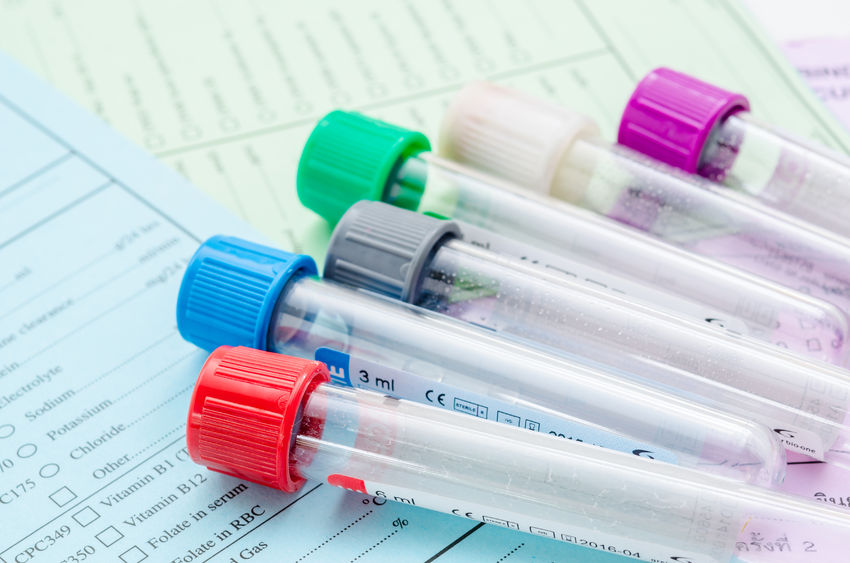
TLC
Also known as Total Leucocytes Count Automated BloodWhat is this test?
White blood cell count is a type of blood test to count the number of white blood cells present in the blood.
What is white blood cell?
White blood cells also called as leukocytes help to fight against infections by attacking germs, viruses, and bacteria in our body and thus an important part of our immune system. White blood cells are originated from bone marrow but circulate throughout the bloodstream.
Types of white blood cells:
There are 5 types of white blood cells:
- Lymphocytes
- Monocytes
- Neutrophils
- Basophils
- Eosinophils
why this test is performed?
This may be performed to find out any infections, allergic reactions, inflammation, blood cancer such as leukemia or lymphoma or side effects caused by other medicines. This test differentiates between acute and chronic infection. It could also be a part of your regular check-up. This test is done as follow up test in patients on chemotherapy.
Precautions:
Certain drugs may increase the white blood cell count like albuterol, corticosteroids like prednisone, prednisolone, etc, epinephrine, granulocyte stimulating factor drugs like filgrastim, lenograstim, etc, heparin, lithium. Drugs which may decrease the count of white blood cells are antibiotics, antithyroid agents like methimazole, carbimazole,etc, anticonvulsant drugs like phenytoin, diazepam, clonazepam,valproic acid,etc, captopril, clozapine, diuretics like furosemide, hydrochlorothiazide, etc, ranitidine, sulfonamides like sulfamethoxazole, sulfisoxazole, etc, quinidine, terbinafine, ticlopidine, and anticancer drugs.
Inform your doctor or technician about your past illness or medication, about your present illness and current medications prior to the test.
Pathology test parameters:
- Lymphocytes count
- Monocytes count
- Neutrophils count
- Basophils count
- Eosinophils count
Also known as TLC Automated Blood, Total WBC Count Automated Blood, Total White Blood Cell Count Automated Blood, TC Automated Blood, TC, Total Leucocytes Count, Total WBC Count, Total White Cell Count.
Test Preparation
Inform your doctor if you are on any medications, have any allergies or underlying medical conditions before your TLC. Your doctor will give specific instructions depending on your condition on how to prepare for TLC.
No specific preparation is required for white blood cell count test.
Understanding your test results
If your white blood cell count is higher than the normal range then the condition is called leukocytosis. There may be several reasons for high white blood cell count some of them are cigarette smoking, post spleen removal surgery, bacterial infections, allergies, inflammatory diseases such as rheumatoid arthritis, leukemia or Hodgkin's disease, tissue damages like burns, certain cancers like acute or chronic lymphocytic leukemia, labor or pregnancy, certain respiratory diseases like tuberculosis or whooping cough, medications including corticosteroids, excessive exercise, etc.
In most cases, all white blood cells get affected. But there are certain conditions where only one type of white blood cell gets affected. If the levels of only one type of white blood cell are high this may be because of specific triggers:
- Monocytes: Increase in the number of monocytes may indicate an autoimmune disorder, blood disorder, chronic infection or cancer, etc.
Lymphocytes: Increase in the number of lymphocytes may indicate the condition known as lymphocytic leukocytosis. This may be due to a viral infection such as tuberculosis and may be linked to specific lymphomas and leukemias.
Neutrophils: Increase in the number of neutrophils may lead to a condition called neutrophilic leukocytosis. Normally this condition is a response to an event such as injury, infection, inflammation, certain types of leukemia and some medications.
Eosinophils: Increase in a number of eosinophil count may be due to the reaction of our body to an allergen or parasitic infection or asthma.
Basophils: Increase in a number of basophils may be due to certain medications or due to the history of thyroid disease like hypothyroidism.
If your white blood cells show less count than normal it indicates leukopenia. Mostly low white blood cell count may be due to severe bacterial infections, tumor or abnormal scarring, bone marrow deficiency or bone marrow failure, liver disease, certain cancers which damage bone marrow, radiation treatment for cancer, anticancer drugs, severe emotional stress or physical stress, trauma, etc.
Abnormal white blood cell count may have certain symptoms like headaches, fever, chills, body aches, etc. Sometimes there might be other symptoms also which are not mentioned above. If you get an abnormal white blood cell count, consult your doctor immediately.
| Gender | Age groups | Value |
| UNISEX | All age groups | 4,000-11,000 cells/ cumm |

